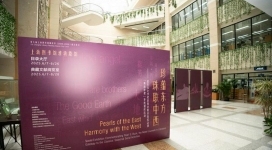
I recently attended the birthday party of a little girl who was too young to read the notes written on her presents. She did not know which gifts came from which guests. I watched as she conferred with the adult beside her to determine who had given her each package. She then searched for the giver to thank them before opening the present. She seemed to have an inherent trust in the givers, assuming that the gifts were good and worthy of gratitude before knowing the contents.
This childish gratitude inspired me to consider the orientation of my heart and mind as I approach Thanksgiving. The simple truth is that in order to be grateful we must first acknowledge that we have been given a gift.
Our inability to see a giver behind our gifts leaves us with a temperament that gravitates toward complaint. Some complaints are legitimate, and others tempt us to complain about complainers. Complaint derives from not getting what we feel we deserve. The opposite of complaining is gratitude: acknowledging that we received something good that we did not deserve. There are ample reasons for sorrow, but we can quickly convince ourselves to despair if we consistently fail to see the good gifts scattered among the wreckage of our world.
One morning several months ago, I was feeling emotionally and spiritually sluggish. My suspicion was that I had a vitamin deficiency of gratitude, so I took my wife on a tour of our home and pointed out everything that we had been given. The gifts ranged from artwork, to kitchenware, to our favorite books and sporting equipment. The value was not just in the items, but in the fact that they reminded us of people who had invested in our lives. The gifts simply reminded us of the givers. Physical objects were not the only things that we had been given. There were also things that we were able to buy because we had been given the opportunity to work. We also own things that we have made because, for this moment, we have been given the good health to work with our hands. When you see everything you have as a gift, your perspective begins to change, and a strange sensation emerges. I call it joy.
It is a tragic situation when a gift has been given out of love, but the receiver does not know who gave it, or worst yet, does not care. In the case of a little girl at a birthday party, the search for the giver is easy. However, there are those in this world with a sense of thanksgiving without knowing whom to be thankful to. Millions of people this week will be thanks-givers, without slowing to ponder the identity of the Thanks-Receiver. We are temporarily thankful for the turkey on Thursday that will fuel our shopping sprees on Friday. We will buy more things at the suggestion of a consumer culture that tells us we actually do not have enough. We have thus commercialized the antithesis of the meaning of the holiday and distracted ourselves from asking the big questions of life that derive from being thankful. I am not suggesting that we should not shop. What I am saying is that we should keep in mind the old doxology "Praise God from whom all blessings flow" and delight not only in the gifts we have been given, but also in the knowledge that the Giver has made Himself known. Take a moment to be still and thank God.
The birthday party generates this question: Can you truly be thankful for a gift even if you do not know its content? Well, it really depends on what you know about the giver. Are the givers good? Are they consistently good? Do they have your best interests in mind? Do they love you? If the answer is "yes," then it is rational to be thankful for a gift even before you open and examine it.
Our attitude toward life depends on how we answer that question. For those of us that know the Giver, we know that "Every good and perfect gift is from above, coming down from the Father of the heavenly lights, who does not change like shifting shadows" (James 1:17).
I often begin my day thanking the Lord for another day of life. It is an odd prayer. I have no idea what this day will hold. I do not know if I will receive wonderful news or wreck my car. Yet, I do know that the heart of the Giver is geared toward my good and his glory, and I can thus thank Him not only for what has been, but for the gift of another day that I have yet to open and explore.
It is fitting to take a few moments each day to be thankful, and it is fitting to set aside a day each year to count our blessings with our friends and families. However, our lives are filled with joy that glorifies God when thankfulness becomes a reflex and not just a holiday.
I returned this week from speaking on a panel titled "Can We Coexist?" with a Buddhist, a Jew, an atheist, and a Muslim. After the event several people approached me and commented that I seemed to have been the most joyful of the participants. I did enjoy the event and the discussions, but perhaps there was more to it than that. As Christians we have much to be thankful for in this world, and that gratitude manifests itself as joy. Not only have we been given good gifts, but we also know the Giver. Take time to give thanks to the gift Giver.
May your meals be merry and may the source of your joy be known throughout the earth.
Reprinted by permission of Ravi Zacharias International Ministries, www.rzim.org.







